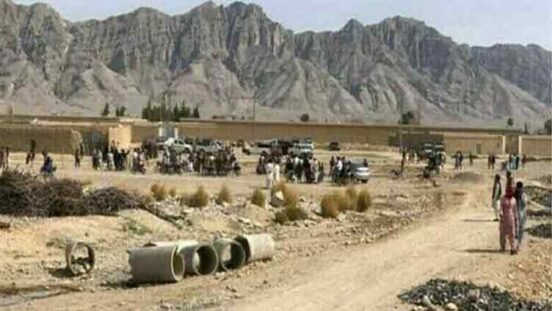By Babar Yousafzai
Recently, a foreign correspondent, Memphis Barker, published an article in The Telegraph describing Balochistan as the “new opium capital of the world.” While such headlines may capture international attention, they do a grave disservice to both truth and responsible journalism. The narrative is not only exaggerated but also detached from the realities on the ground in Pakistan’s largest and most resource-rich province.
Misrepresentation of Ground Realities:Balochistan, with its rugged terrain and scattered population, has long struggled with underdevelopment and militancy. To suggest that vast swathes of its farmland are being converted into industrial-scale poppy fields is misleading. Satellite images, often used as the basis of such claims, cannot capture the nuanced realities of agricultural production or distinguish between small, scattered cultivations and organized large-scale farming.
Exaggerated Comparisons with Afghanistan:The claim that Balochistan is overtaking Afghanistan in opium cultivation is not supported by credible data. For decades, Afghanistan has produced more than 80 percent of the world’s opium, with sophisticated trafficking networks built over generations. By contrast, Pakistan’s contribution has consistently remained negligible, confirmed by the United Nations Office on Drugs and Crime (UNODC) and Pakistan’s own Anti-Narcotics Force (ANF). To equate Balochistan with Afghanistan in this context is a clear overstatement.
Ignoring Pakistan’s Counter-Narcotics Efforts:What Barker’s article fails to highlight is Pakistan’s active role in combating narcotics. The ANF, Frontier Corps, and law enforcement agencies regularly destroy illegal crops and seize large consignments of narcotics before they reach international markets. Pakistan remains a committed partner in global counter-narcotics conventions and has paid a heavy price in both blood and resources to fight drug smuggling and terrorism.
The Socio-Economic DimensionI:f limited cultivation exists in certain impoverished pockets of Balochistan, it is a reflection of poverty and the absence of alternative livelihoods—not evidence of a booming drug empire. Farmers facing water shortages and unemployment sometimes turn to poppy as a last resort. The real solution lies in investment, education, and development programs that provide sustainable economic opportunities—not sensationalist labels that stigmatize the province.
A Call for Responsible Journalism:International correspondents must acknowledge the impact of their words. By portraying Balochistan as a hub of global narcotics, such articles reinforce harmful stereotypes and overlook the sacrifices Pakistan has made in countering both terrorism and drugs. Balanced reporting demands rigorous fact-checking, engagement with local voices, and reference to credible data—not just provocative headlines.
Conclusion:Balochistan is not the “new opium capital.” It is a province struggling to overcome decades of neglect, poverty, and external interference. What the people of Balochistan need is empathy, investment, and recognition of their resilience—not a narrative that unfairly paints them as part of the world’s drug problem. The international media must rise above sensationalism and contribute to solutions, not stigmas.




